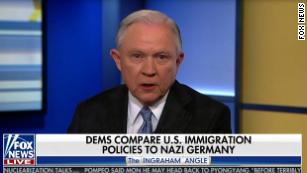The Methodists are not alone in feeling the weight of fracture. Last week, the Southern Baptist Convention met amid tensions over race and a #metoo scandal. While they eschewed some right-wing stridency from their recent past, it is clear that they, like the Methodists, remain deeply divided -- and may be moving toward the point of schism between a white old guard establishment and a more diverse rising generation.
Put simply, America's two largest Protestant denominations -- one mainline, one evangelical -- are facing institutional rifts that pit established policies of the past against activist calls for inclusion, justice and new leadership. Their shared tensions are not uniquely religious. Instead, they are experiencing stresses endemic across American culture. And their common struggle makes this a pivotal moment in American Protestantism.
Despite conventional belief to the contrary, major schisms are somewhat rare in America's largest religious groups. American Protestantism is notorious for its tendency to splinter, with enough breakaway groups to fill up several history tomes. But those splits are often doctrinally specific and based on single issues, and the resulting denominations remain relatively small. When large-scale schisms happen, however, they fall along worrisome fault lines that exacerbate social conflict, heighten tensions, and worsen intractable political tensions in American culture. In the past, those major breaks have occurred around issues of individualism and authority, slavery and racism, tensions between science and faith, and the role of women in leadership.
In the mid-19th century, the Methodists and Baptists were (as they still are) the nation's largest Protestant churches. Two decades before the Civil War, these two denominations wrestled with the most controversial social issue of the day: slavery.
1845 proved to be a crucial year for both groups. In the Methodist case, antislavery leaders voted to suspend a bishop who held slaves; in the Baptist case, antislavery members attempted to bar slaveholders from missionary work. In both churches, antislavery activists attempted to limit slavery by making it morally unacceptable and geographically constrained. By 1845, all neutrality and all compromises were off the table. Although antislavery forces won crucial votes and changed important church policies, aggrieved proslavery church members left -- forming the Methodist Episcopal Church South and the Southern Baptist Convention.
At the time, clergy, politicians and journalists noted that the schisms were a blow to the Union. Most historians believe these actions were the prelude to the Civil War and, in many ways, contributed to the nation's further political fracturing.
Is something similar happening now? Does this ecclesiastical tumult foreshadow an even larger political crisis awaiting us?
The answers are, yes and maybe.
As difficult as this moment seems, I think that historian Jon Meacham is correct when likening our time to a "Dred Scott" moment, referring to the Supreme Court decision that people held in slavery were denied the rights of full citizenship. Meacham, like many other historians, has insisted the primary divide was between those who recognized enslaved people as fully human and those who did not.
As the rights of citizenship were at stake in Dred, during the 1845 schisms the rights of church membership were the basic question. Did fully baptized people held in slavery have the same freedoms -- in theological language, "freedom in Christ" -- as slaveholders? The churches argued about the Bible's moral teaching regarding slaves and territorial expansion of slavery (as related to Western mission work), in effect struggling with whether black people in slavery were fully human. These Methodist and Baptist ecclesiastical arguments would re-emerge as secular issues at the fore in the Dred Scott case. The churches argued these concerns a full decade before the courts did. And the results were strikingly similar: divides and schism.
Today, the Methodists and Baptists are not really fighting over mere "issues." They are fighting about whether women, people of color, immigrants, and LGBTQ people should, on the basis of human dignity and worth, have full rights, responsibilities and respect in their church communities.
We are in the run-up, that time of uncertainty when a whole lot of people are making terrible decisions that eventually result in an even worse conflict. To have both Methodists and Baptists echoing their past fights now is stunning.
History, however, is not predestination. Just because something resembles a moment in the past, unless one is in a "Star Trek" episode, doesn't mean that repeating that past is possible. We have historical free will. We can make similar mistakes or we do better. The breakup of a church -- or two -- may portend only the breakup of institutions unwilling to change, not the dissolution of a great nation. Or, the tensions toward schism might only reveal a generational dynamism pushing for a vibrant and just future, not the end of the world.
After all, as Shakespeare wrote, the past may be prologue, but what is to come is "in yours and my discharge." While history is busy repeating itself, the future depends on us.


